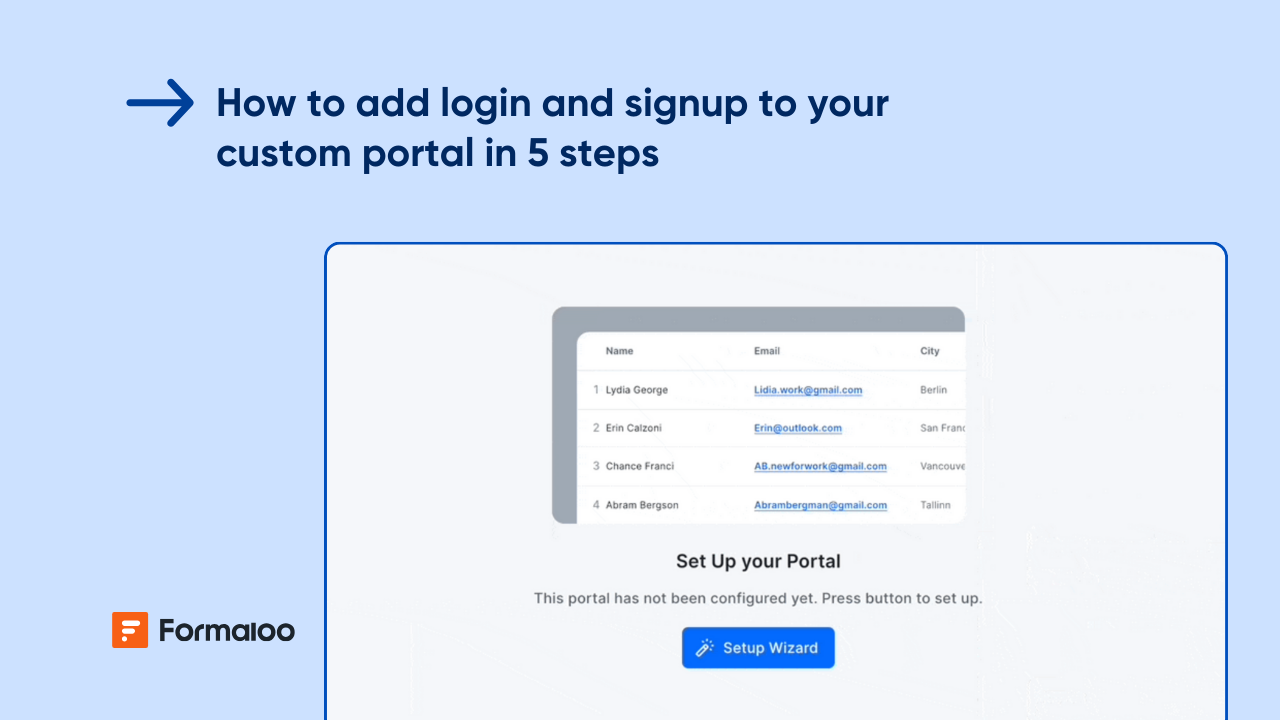How to reduce data security and access management costs
Keeping data safe and controlling who can access it is important for companies. Passwords are what most people use to protect their information, but businesses need stronger and more advanced techniques.

Keeping data safe and controlling who can access it is important for companies. Passwords are what most people use to protect their information, but businesses need stronger and more advanced techniques.
Every day, companies handle a large amount of information, including customer details, financial records, and other important credentials. If this data falls into the wrong hands, it can seriously damage the company’s reputation and incur significant costs.
So, no matter if you’re a small business or a big one, you need to take data security seriously.
This article will look at ways to reduce the costs of keeping data safe and controlling who can access it.
We’ll talk about different ways and tools that can help businesses protect their data without spending too much money. While passwords are important, there are other things you need to consider to keep your data safe.
What is data security, and what are the challenges?
Data security, also known as information security, is the practice of protecting digital data from unauthorized access, disclosure, alteration, or destruction. It involves implementing measures and safeguards to ensure the confidentiality, integrity, and availability of data.
As technology keeps going forward, data compliance is getting more and more complicated. To tackle these challenges effectively, we’ve got to start by understanding the landscape of data security.
Here are some of the challenges we’re dealing with these days:
- Data breaches happen all the time, and they’re a big deal. They expose sensitive information, mess up reputations, and cost a ton of money. Threat actors keep coming up with new tricks like Ransom fishing and social engineering.
- Governments are imposing stricter data protection laws requiring organizations to be more vigilant in their security efforts. Also, with mobile gadgets and remote work, keeping data safe across all these platforms and devices is challenging.
- Organizations often face resource limits, making it challenging to allocate adequate funding to security measures and data protection.
- Regulations are getting more demanding, for example, the GDPR rules in Europe, the CCPA in California, and the HIPPA compliance for the healthcare industry in the US. All these regulations have ushered in a new era of compliance. Thus, non-compliance can lead to hefty fines and additional costs.
Why reduce security costs?
Keeping data secure can be expensive, but it’s a critical task for businesses. By reducing data security costs, companies can allocate their resources more efficiently, invest in other crucial areas, and gain a competitive advantage in the market.
Moreover, some industries have strict regulations on data protection, and lowering costs while staying within these rules can help businesses avoid fines and legal troubles. That, in turn, frees up more money for research, marketing, and employee welfare.
For small companies with limited budgets, affordable security solutions are a must-have. It’s not just about saving money; it’s about safeguarding information with fewer resources.
When a business can keep data safe without breaking the bank, it builds trust with the public and enhances its reputation in our digital world.
The impact of inefficient security measures on budget
Ineffective security measures can greatly harm businesses in many ways, leading to negative outcomes. Here are some of the main consequences of using ineffective security measures:
- Direct financial loss: Cyberattacks, data breaches, and unauthorized access to sensitive information can lead to theft, fraud, and financial damages. Companies may need to invest significant resources in resolving security incidents, recovering lost data, and compensating affected parties.
- Reputation damage: When customer data is compromised, it erodes trust, and customers may take their business elsewhere. Reputation damage can have long-lasting consequences, impacting the ability to attract and retain clients.
- Operational disruption: Security incidents can disrupt normal business operations, resulting in lost productivity, project delays, and recovery costs.
- Compliance penalties: Many industries are subject to regulatory requirements related to data security and privacy. Inefficient security measures can result in non-compliance, leading to significant fines and legal penalties.
- Increased insurance costs: Companies invest in cybersecurity insurance to mitigate potential financial losses due to growing cybersecurity threats. Inefficient security measures can lead to higher insurance premiums.
In a nutshell, the world of data security and access management is full of new threats and costly data breaches. That’s why we should find smart ways to keep our data safe without emptying our wallets.
How to reduce costs in data security and access management
There are a few practical strategies that help you cut off some costs of your data security while investing in it.
Risk-based approach
Rather than overwhelming your organization with overly complicated and impractical security rules, focus on what’s essential. Develop clear and straightforward policies that address your specific needs, as overcomplicated rules can lead to confusion and extra work.
A risk-based approach is crucial in understanding your security needs. Think of it as investing in insurance – you don’t need to cover every possible scenario, just the most likely and high-impact ones. By adopting a risk-based approach, you can identify the most critical threats and vulnerabilities and allocate resources where they matter most.
This way, you’re not wasting money on unlikely scenarios while ensuring you’re protected where it counts.
Employee training and awareness
Investing in training and awareness programs for employees can be a cost-effective measure in preventing data breaches. A significant number of data breaches occur due to human error or negligence.
By educating your employees about the significance of data security, safe online practices, and identifying phishing attempts, you can decrease the likelihood of security incidents.
The cost of implementing training programs is often lower than dealing with the consequences of a data breach.
Incident response plans and regular security audits
Having a well-prepared incident response plan is a game-changer. It ensures you know what to do if things go awry. Such plans help you respond quickly to security incidents, minimizing their impact and the associated costs.
Regular security audits act like health checkups for your data security. They help you find vulnerabilities and weaknesses before malicious actors do. By identifying and fixing these issues in advance, you can save money on potential breach-related expenses. Moreover, regular security audits protect your organization’s reputation by showing your commitment to data security.
Automating data access and management
Role-based access control
In our modern world, teams use different tools and services to work together. They share data, like files and information, which can create an issue.
Sometimes, we end up with many copies of the same files, and it becomes hard to keep track of everything.
A long time ago, this problem was solved with a central system that could watch over who has access to what and what they are doing with it. This way, we don’t have to make copies of the same data all over the place.
That’s where platforms like Formaloo come into play and centralize access management. This means you don’t have to copy the same data into different systems, which can lead to confusion and security risks.

For instance, you won’t need to duplicate your data in a form builder and import it into an email campaign system or an Excel spreadsheet. This centralized approach ensures a single, reliable source of truth for your databases.
Not everyone in your organization should have access to all data or specific databases. With Formaloo, you can create teams with different access levels, aligning with departments, clients, projects, and more.
This principle follows the “need-to-know” basis, ensuring that individuals only access what’s relevant to their roles. That reduces the risk of data being mishandled or transferred to unauthorized systems, ensuring data security and compliance.
Single sign-on (SSO)
Single Sign-On (SSO) is a powerful tool that simplifies how your employees access various business systems. With SSO, your employees get a single login credential to access all your business systems at once.
This means they don’t have to remember many different passwords, reducing the risk of them noting down passwords in unsafe places that unauthorized individuals might access.
The advantages of SSO extend beyond just convenience. You can manage all your security systems in one place. This software installed on your employees’ computers and laptops monitors their data access activities.
It is especially critical for businesses in highly regulated sectors like fintech, insurance, or healthcare.
SSO ensures that employees can’t download company data to their devices or transfer it outside the organization. If someone tries to do something unauthorized, the system alerts you.
The dual layer of Formaloo’s access management and SSO ensures full protection for your internal and external data.
Formaloo provides you with SSO along with its user access management. The best part is that it’s not limited to files or databases; you can set it up at an organization, team, or department level.
Each department can manage, monitor, and provision its own team, ensuring a high level of security and making the whole process very efficient.
On-premise solutions
While cloud-based services are popular and convenient for many businesses, some organizations cannot use such services for their most sensitive data. These organizations include financial technology (fintech) companies, banking institutes, insurance institutes, healthcare organizations, and select universities.
Why? Because they deal with highly confidential information, such as medical records, insurance records, personal data, and transactional records.
Storing this kind of data in a shared cloud system is often not compliant with the strict security and privacy regulations governing these industries.
Cloud services like Google Drive, while convenient, do pose certain risks, as third parties, including cloud service providers, may have access to the data. Even with end-to-end encryption, the data is hosted on shared cloud servers, making it potentially vulnerable.
To address these security and compliance concerns, organizations that deal with sensitive data often seek a higher grade of data security, such as on-premise solutions.
On-premise solutions help organizations host and store their databases and files on their own servers, entirely within their control. No third parties have access to this data.
Formaloo offers an on-premise solution to meet the needs of organizations with highly sensitive data. This solution provides all the benefits of Formaloo’s robust features, including role-based access management, user profiling, and administrative control, but with the added advantage of complete data control.
With Formaloo On-Premise, organizations can create forms, workflows, and internal tools while hosting their data securely within their own servers.
In fact, some organizations go a step further by using Formaloo on their local intranet, ensuring that sensitive data never leaves their internal network.
Prioritize vigilance for effective data security
In conclusion, maintaining data security and compliance is undoubtedly a complex and ongoing challenge, particularly in a world where data is both a valuable asset and a potential liability. However, this challenge becomes far more manageable when organizations make informed choices about the tools they use.
Two critical aspects of maintaining robust data security are often overlooked: having a reliable backup system and conducting regular access reviews.
A robust backup system is a safety net that can mitigate the consequences of data loss, whether due to hardware failure, cyberattacks, or accidental deletions.
Access reviews are equally crucial, as they help identify and rectify potential security gaps. Most data breaches occur due to human errors, such as employees retaining access privileges after leaving a company. Regular access reviews help prevent these vulnerabilities from being exploited.
Book a demo to start your data security and access management journey with Formaloo.
For more useful content, check our blog page and follow us on our YouTube channel.
.png)











